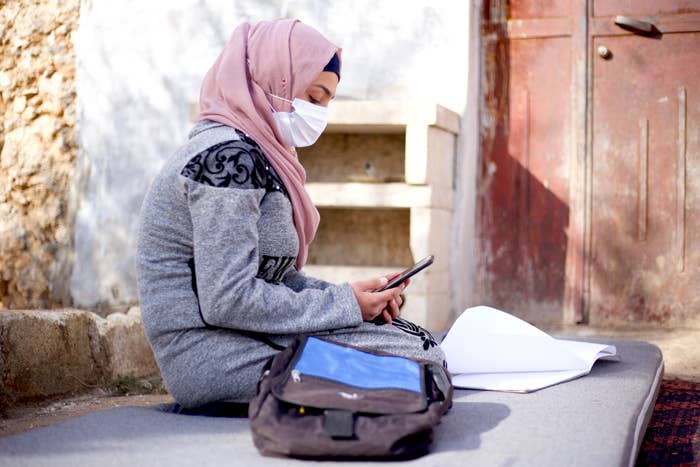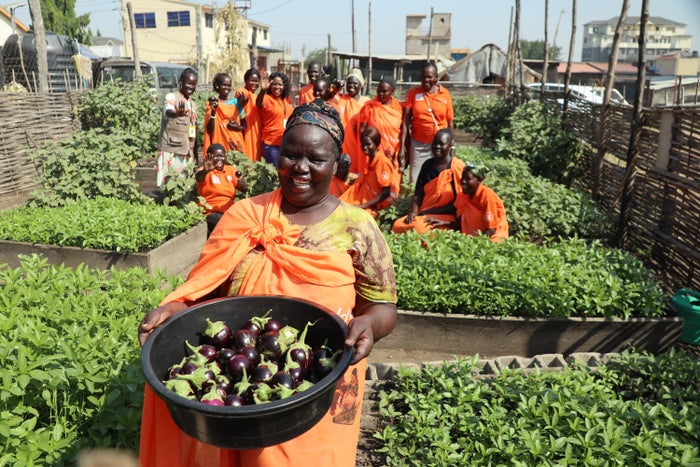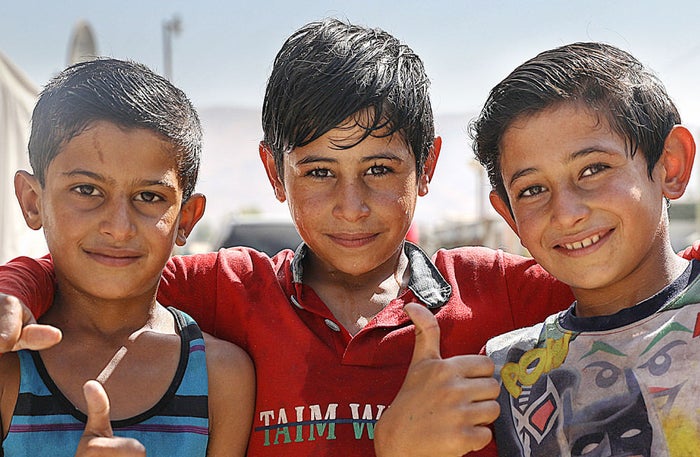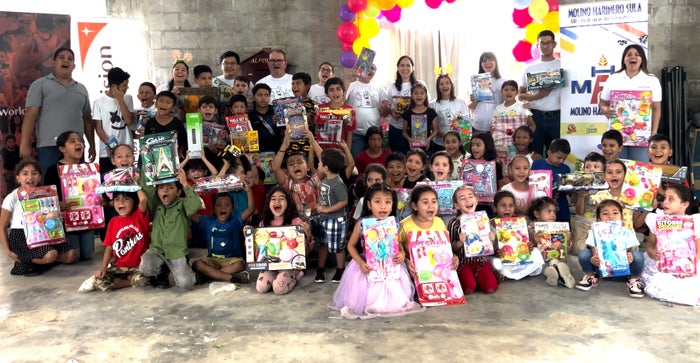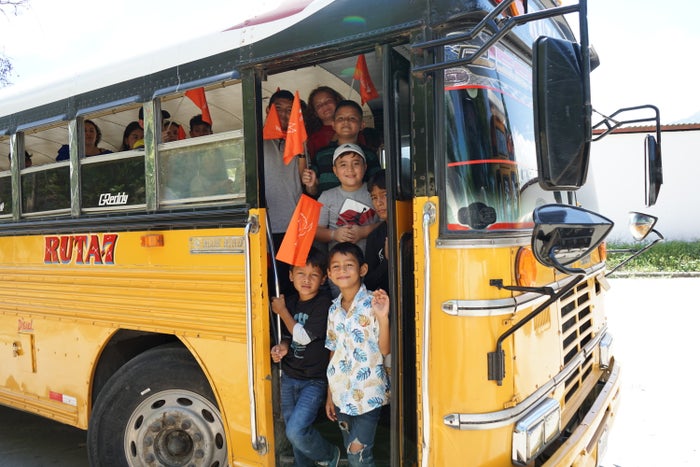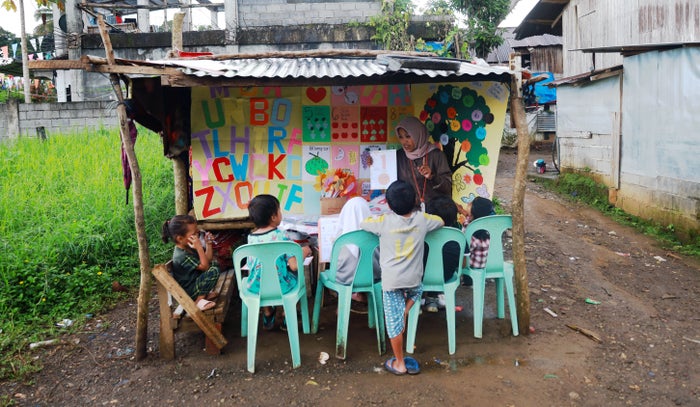Syrian woman, refugee, child bride, mother, designer and now, powerful activist.
Meet Fatimah.
Fatimah and her family were among the first to be forced to flee the deadly conflict in Syria. Fleeing rural Aleppo in 2011, she’s now spent over half of her life as a refugee. 10 years!
Settling into Jordan was very difficult, the loss of home, freedom and hope was sadly compounded by the death of her beloved father a few years later. With no money or security there was seemingly only one solution:
“My mother was forced to marry me to my cousin so he could take care of us and provide for us,” she says. Fatimah had only just reached puberty…
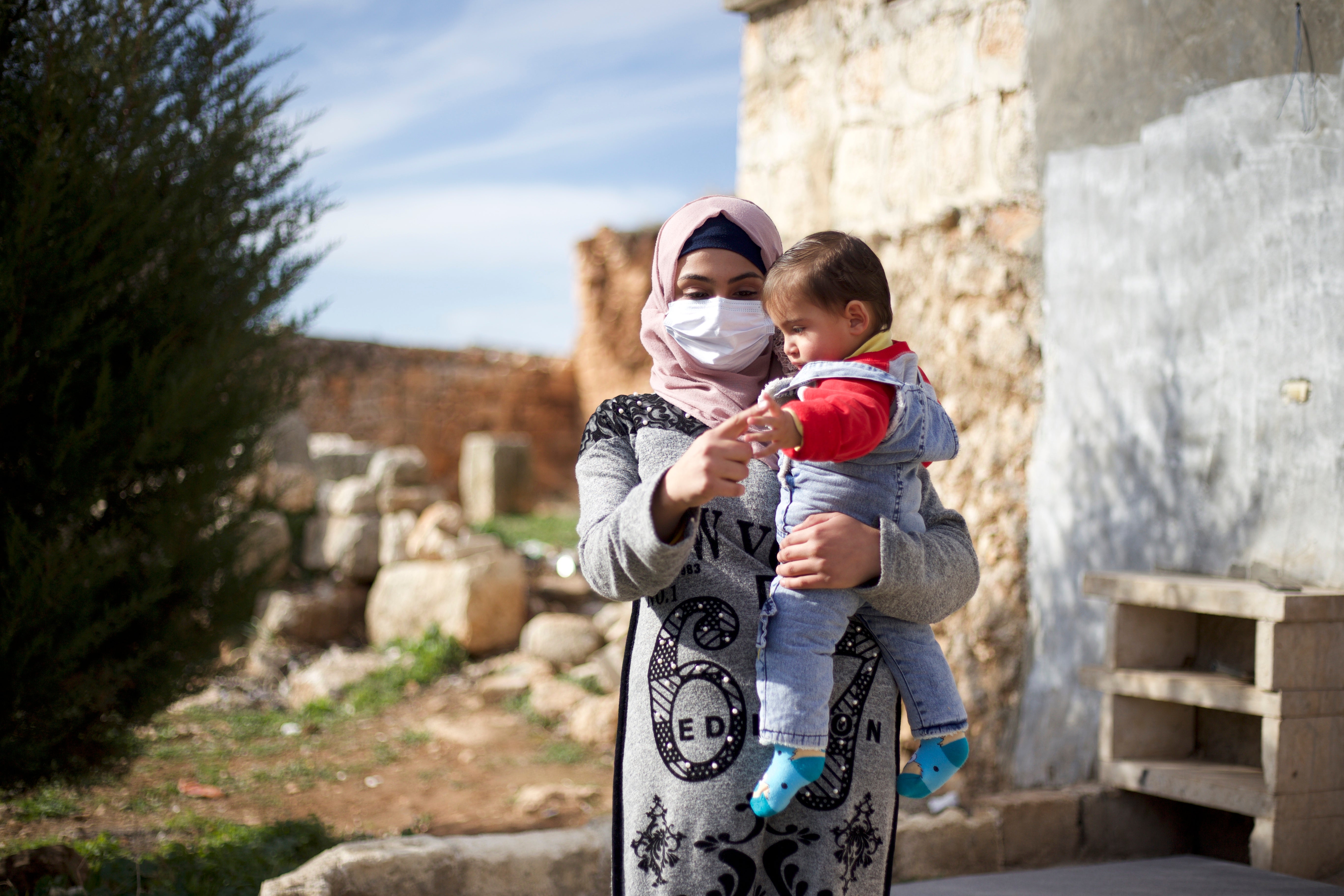
4.8 million Syrian children have been born since the war started ten years ago. All they have ever known is war.
Now a child bride, Fatimah was forced to leave school and didn’t know what was expected of her as a wife. A year into the marriage she separated from her husband but her relatives wouldn’t allow it, and insisted she return to him. Fatimah then fell pregnant and gave birth to her first child. Desperate, she was on the verge of losing all hope.
Despite the hopelessness she felt, things slowly turned around when a friend told her about a World Vision Support Centre that offers women and girls psychological support and education sessions.
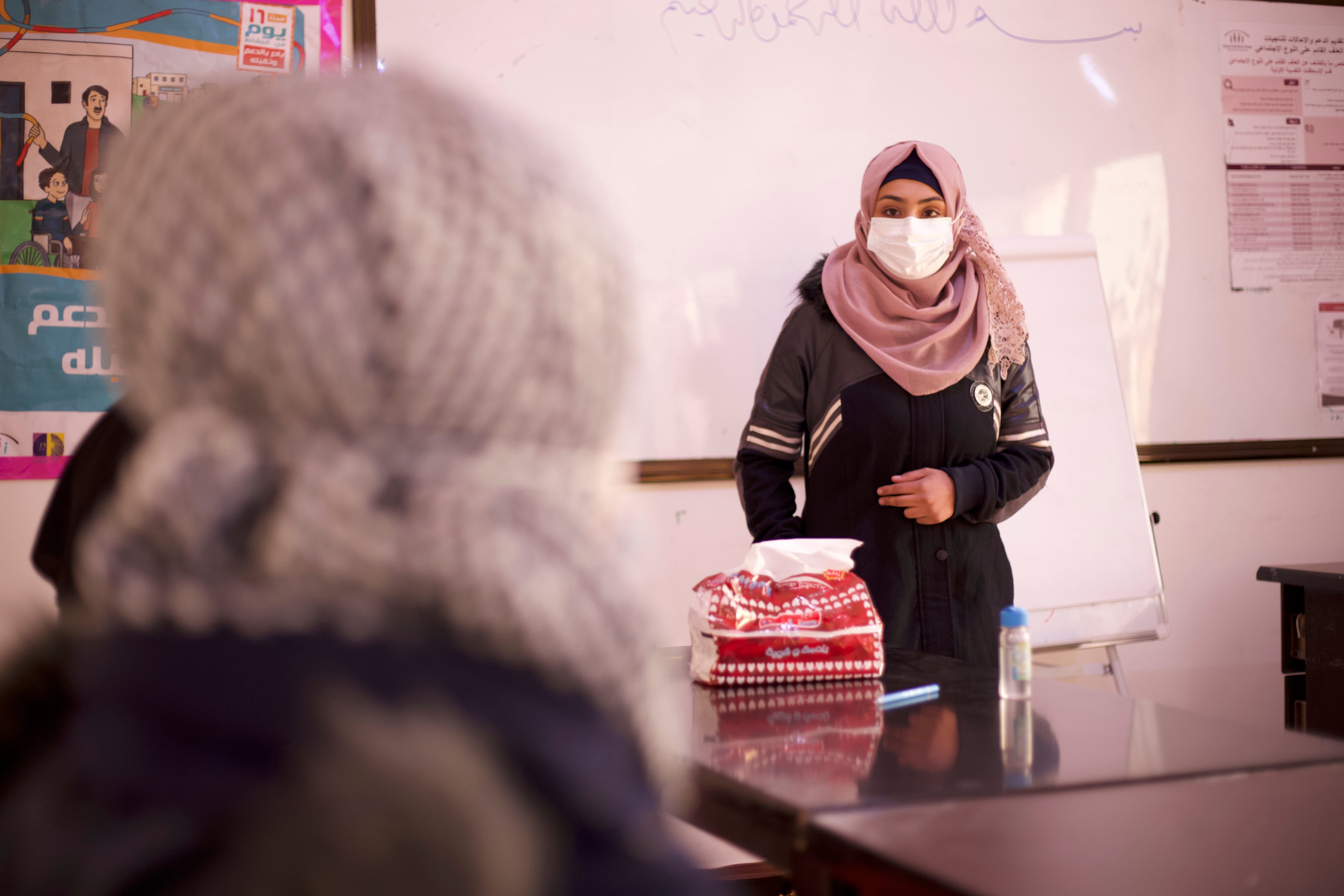
2.5 million Syrian refugee children are traumatised by the effects of war on their lives. 80.9% of the child refugees World Vision spoke to, do not think they will be able to return to Syria within the next 2 years.
“I visited the Centre to see what services were provided, and registered in the young mothers’ club. It was a good experience and I learnt many things that strengthened my self-confidence,” Fatimah says.
The most important take-away for her?
“I felt that I exist, that I am a female that exists in this world. And I learnt new communication skills that improved the relationships in my family a lot.” She also went back to school to continue her interrupted education. And from here Fatimah’s fearless passion for advocacy, women and child rights and the power of social media was born.
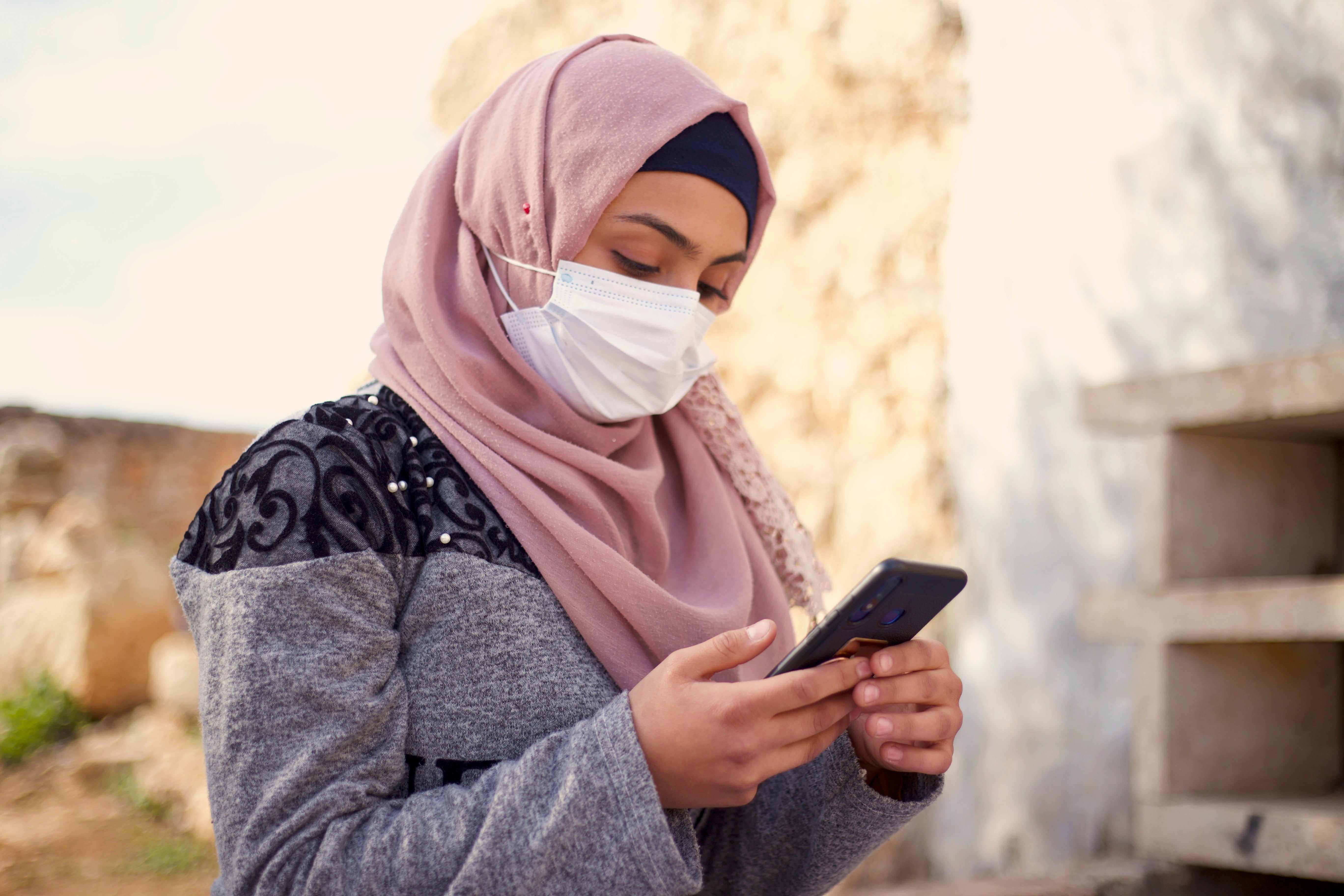
For the $1.2 trillion cost of this Syrian war, every child could have completed a degree at Harvard University. Instead, they beg for books, and use shared pencils in tent classrooms.
Eman is a case worker at the Centre and has guided Fatimah through the programme. She explains that it was Fatimah’s idea to engage with other women and girls to put a stop to child marriage.
“She wanted to send out a message to women who had an experience similar to her own, seeing what could they could do, what they had to offer to society, and what are the strengths women in this situation should concentrate on.”
Fatimah realised that social media groups were a great way to spread the word and reach girls not just from Syria, but all over the world. In the groups, she warns girls and young women about following old traditions and customs that encourage child marriage with all its dire consequences - from dropping out of school to teenage pregnancies, and worse.
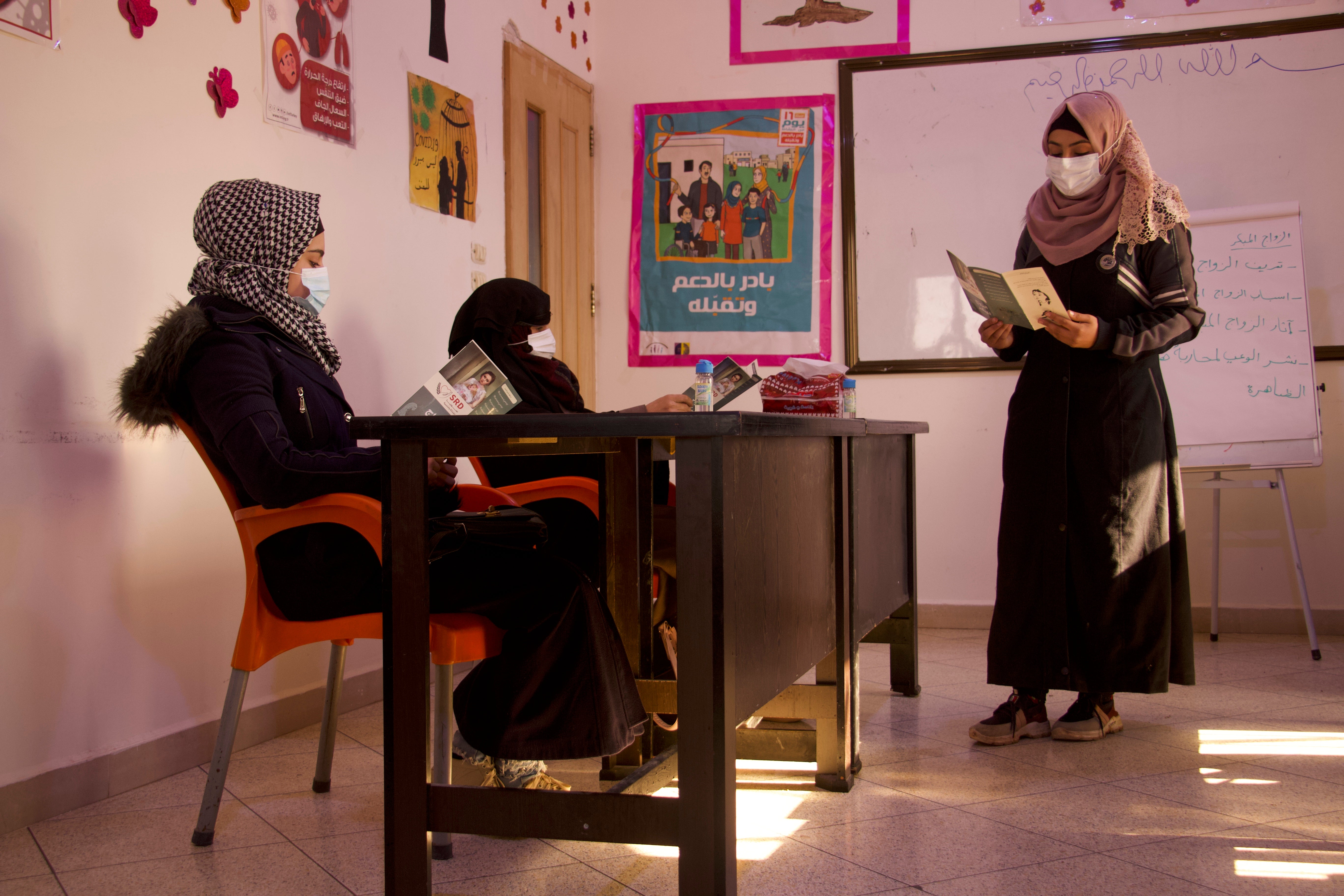
Today, Syria is one of the worst places in the world to be a child. Around 600,000 people, including 55,000 children, have been killed, half the population displaced, and a child’s life expectancy has been reduced by 13 years.
Despite the injustice and dangers she has faced, Fatimah now embraces a different kind of danger. Her voice.
Advocating for women and girls’ right, speaking out against child marriage and the importance for girls completing their education can be extremely dangerous in her culture. But Fatimah is savvy, using Facebook and Instagram, she connects with many young women, offering support, and giving them tools to recover from abusive situations and to have hope in building a future.
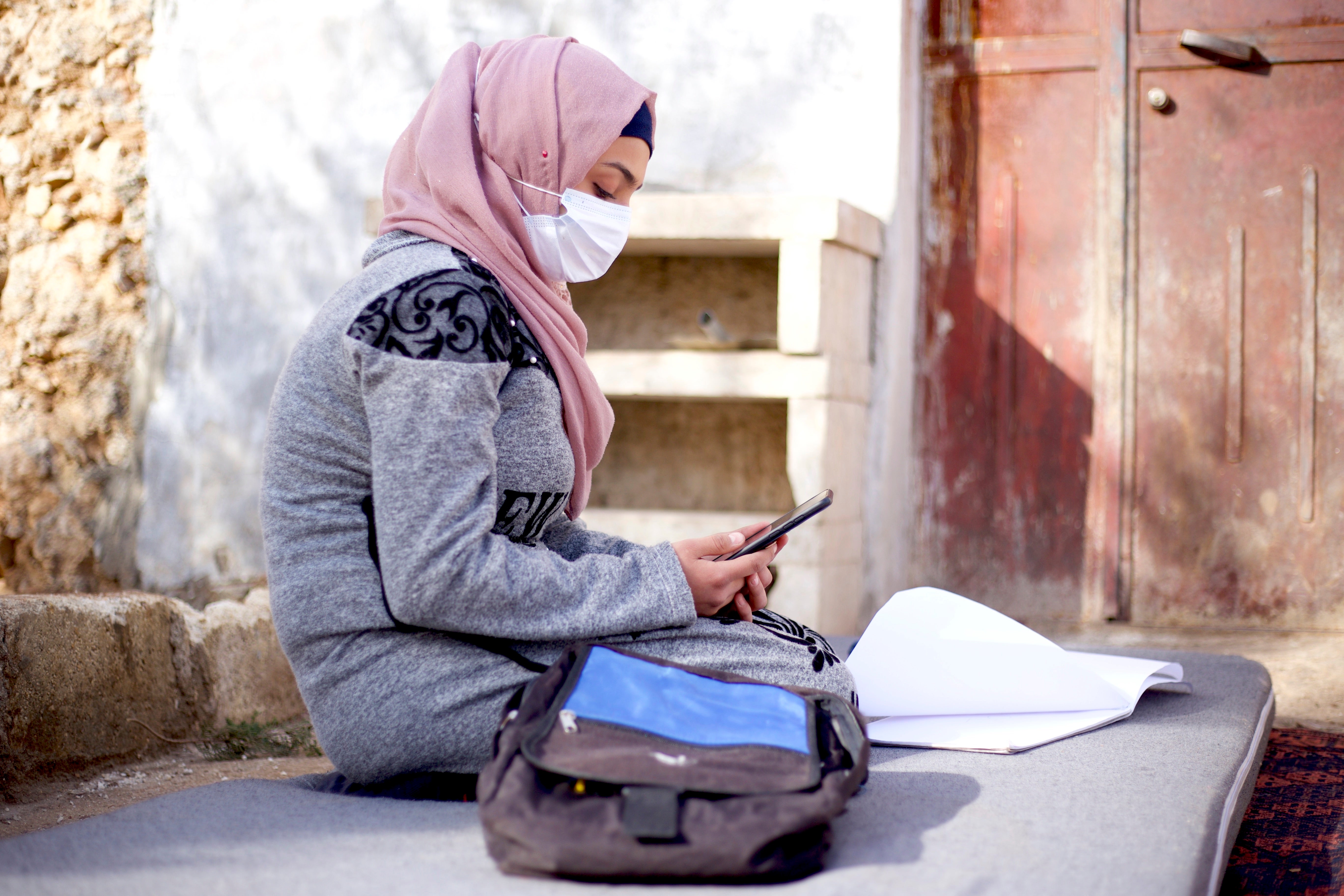
Resilient, courageous, inspiring - Fatimah
